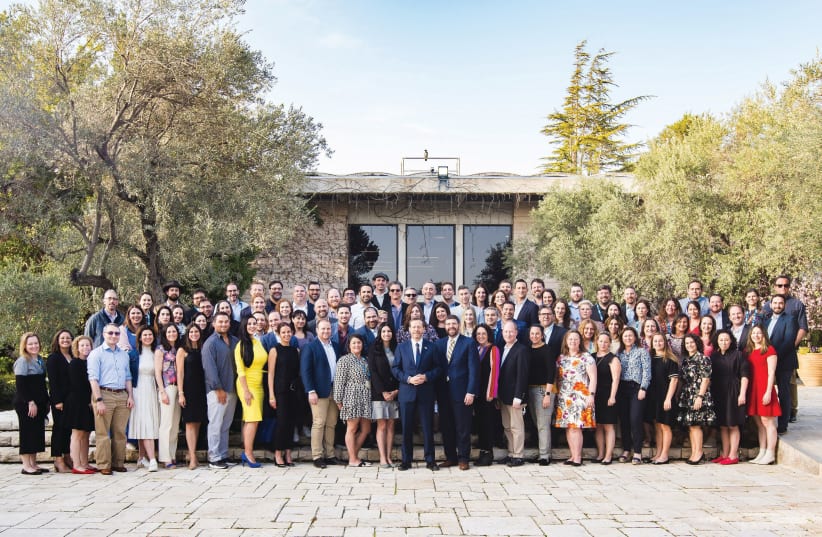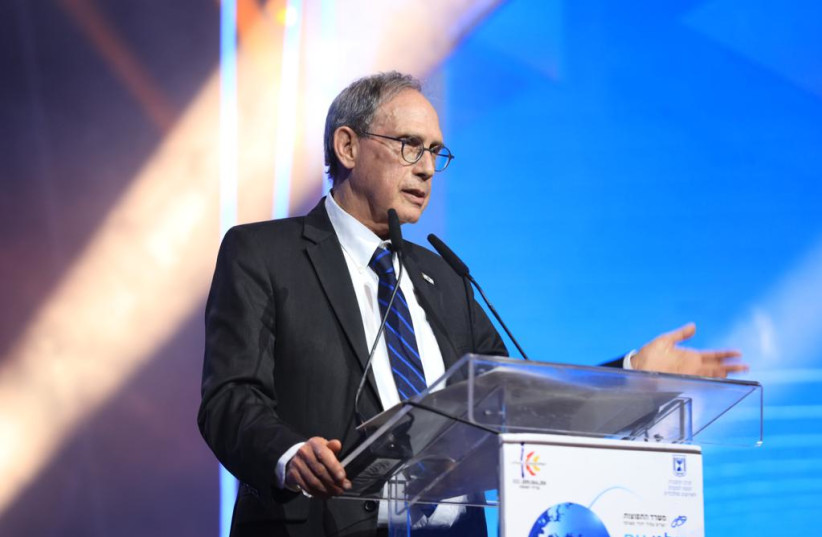Earlier this month on the long journey to the Polish-Ukrainian border, a group of Jewish communal leaders on a humanitarian aid mission with the Jewish Federations of North America made a comfort stop at a gas station near Lublin. In what felt like the middle of nowhere in Poland, participants were amazed to suddenly hear Hebrew being spoken in the background. The speaker turned out to be Israel’s Health Minister Nitzan Horowitz, who was heading into Ukraine to visit the Israeli field hospital. He gladly hopped on the bus and gave an impromptu update about the unique and lifesaving work underway there.
When I arrived at Chopin Airport in Warsaw to check in for my flight after another one of these missions, I bumped into two young doctors we had met in the field. They were also heading home to Israel, having completed their volunteer rotations at one of the Jewish Agency for Israel hotels housing Ukrainian Jews about to make aliyah.
The doctors had already made a strong impression when they spoke to our group about their work and the care they were providing to those who had been on the move in harsh conditions. But it was only at our second meeting when we had the chance to engage in the Jewish geography conversation that I learned one of the physicians was the son of a colleague from the UJA-Federation of New York with whom I had worked for many years.
These encounters between North American Jews and Israelis are remarkable and may seem serendipitous considering our small numbers. In Poland’s vast 312,700 sq. km. landmass, Jews from Israel and from the Diaspora kept finding one another on our missions to lend a helping hand to people in need.
After two challenging years of airport closures and restricted travel in which North American Jews and Israelis rarely met face-to-face, these unexpected moments in Poland reminded us that our two communities exist around shared values and commitments. The paths we choose are built on common ground and when our global community experiences a crisis, we stand together in solidarity.
After the horrific and deadly terror attack in Bnei Brak at the end of March, a number of the participants on our National Young Leadership Cabinet Mission felt compelled to step away from the planned program to visit the shiva homes of two of the victims. They offered words of sympathy and delivered a concrete expression of care and concern when they presented the grieving families with checks from the Jewish Agency for Israel’s Fund for the Victims of Terror supported by Jewish Federations. The messages these young leaders relayed were clear: We stand in solidarity against terror and hate, and when you hurt, our community hurts with you.
Just a few hours earlier, our young leaders participated in a very different type of experience in the same city, meeting with community representatives to learn more about Haredi society, and engage in dialogue around challenging social and religious lifestyle questions.
During the week-long mission, the group heard a range of different viewpoints from a cross-section of Israelis about religious diversity and pluralism, philanthropy, equity and inclusion, and more. Some of the conversations were harder than others, yet our young leaders approached each session with open minds and a desire to learn, listen and experience together. And many of them returned to their local communities with a richer more nuanced connection to Israel and its people, thanks to the meaningful conversations they engaged in around these complex issues.
It is true that our environments are often shaped by different political and religious complexities, and we may not agree on every issue. But when we agree to acknowledge and respect our differences, our two communities can not only sit together once again, we can create authentic connections and work together in order to better our universe. In so doing we reconnect to our shared values and commitments, and are ourselves strengthened immeasurably.
During the last two arduous years, we had to work hard to bridge the gaps widened by our separation. We are so grateful that now we can meet once again;. When we do, so much is gained and sometimes, when we stop and listen, we find out who one another really are.
“How good it is when brothers and sisters can sit together,” we read in Psalms 133. How good it is indeed.
The writer is the director-general of The Jewish Federations of North America’s Israel Office, and senior vice president of its Israel and overseas programs.

